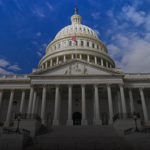Preview this deck
Aristotle's view on the end toward which a good regime should be oriented?
Front
Active users
2
All-time users
2
Favorites
0
Last updated
8 months ago
Date created
May 5, 2024
Cards (16)
Unsectioned
(16 cards)
Aristotle's view on the end toward which a good regime should be oriented?
Aristotle's concept of telos or end of goal for a good regime is related to eudaimonia which is translated as “happiness of flourishing. He believed that the purpose of politics and governance is to enable individuals to achieve eudaimonia both individually as collectively within the polis.
For Aristotle, the telos of a good regime is the common good or the well-being of the community as a whole. This common good helps with the development of virtue, moral character, and a sense of belonging and civic duty among the citizens. To achieve this telos, Aristotle believed a good regime should be ruled by the virtuous having mixed conditions, rule of laws, and civic partiipation.
What is Mill's views of the end toward which a good regime should be oriented,
Mil believed that the end toward which a good regime should be oriented is the promotion of individual liberty and the maximization of happiness for the greatest number of people.
He also believed a good regime should protect minority rights and promote pluralism.
Compare and contrast both Mill's and Aristotle's perspective
Similarly, both Aristotle and Mills emphasize the importance of educative politics in developing citizens' capacities and potential.
However, the difference between the two is Aristotle is focused on virtue and moral character while Mills emphasizes individual autonomy.
Compare Locke's and Rousseau's views
Locke sees property as an essential natural right for the protection of individual rights and economic propensity, leading to his advocacy for a limited government and a system of property rights.
Rousseau on the other hand, views property as a source of inequality and social division leading him to critique the concept of private property and advocate for a more communal and egalitarian form of society.
What is Mill's perspective on politics as an educative
Mill emphasizes the importance of individual autonomy and self-development. He believed that politics should empower individuals to realize their full potential.
He believes politics should serve as an educative force by fostering open debate encouraging critical thinking, and promoting the development of individuality.
He emphasizes the importance of free expression and diversity of opinion in shaping public discourse.
What is Aristotle's perspective on politics as an educative
He believed that participating in political life particularly in the form of citizenship in a polis (city-state) was important for the development of virtue and moral character.
Furthermore, Aristotle saw the polis itself as an educative intuition. He believed that living in a community with others and participating in governance helped individuals learn to cooperate and compromise for the common good.
Aristotle also emphasizes the importance of education in preparing citizens for their political roles. He argued the purpose of education should be to cultivate both intellectual and moral virtues.
What is Rousseau's view on property?
According to Rousseau, property rights are constructions that undermine the natural equality and freedom of individuals as they create hierarchies and divisions within society.
Rousseau on the other hand, criticizes the concept of private property as a source of inequality, exploitation, and social division.
He argues that private property leads to the exploitation of the poor by the wealthy.
Rousseau proposed a return to a state of nature of collective ownership, where the property was held in common and individuals shared resources equality.
Aristotle and Mill both believe that politics should be educative, and aimed at developing the capacities and potential of citizens. What is the end toward which a good regime should be oriented in their respective views, and how can the public order contribute to the development of the citizenry
Introduction: To begin, both Aristotle and Mill saw politics as educative. Aristotle emphasized the cultivation of virtue within the political community, while Mill emphasized the importance of individual freedom and the exchange of ideas for social progress.
Aristotle and Tocqueville each discuss the prospect of “mixing” aspects of rule by the “few” and the “many” in order to minimize the downside of each (for Aristotle, “polity”; for Tocqueville, “aristocracy” and “democracy”). Discuss the different definitions of the regime types that constitute the mixed regime for each thinker. Explore the approach of each with respect to the idea and practice of a “mixed constitution.”
Introduction: Political theories such as Aristotle and Tocqueville have delved into the concept of mixing aspects of rule by the “few” and the “many” in order to create a more balanced and stable form of government. Aristotle sees this blend as “polity”, while Tocqueville explains it through the notions of “aristocracy” and “democracy”.
What is John Locke's view on property?
Property according to Locke, serves as a means of preserving one's life, liberty, and estate, and its essential for the protection of individual rights and the promotion of economic prosperity.
Locke believes in natural rights and the idea that individuals have the right to acquire and possess property as long as it does not infringe upon the rights of others.
He argues that property is a natural extension of labor, as individuals mix their labor with the land or resources they work on, therefore, creating the legitimate claim to ownership of land.
In Locke's political, theory, the protection of property rights was a primary function of government and the consent of property-owning individuals legitimized political authority.
Compare the views of Locke and Rousseau on property – its political, social, and economic role, and how each thinker’s understanding of property shapes a more comprehensive vision of the resulting political order.
Introduction: Both Locke and Roussivie viewed property as significant, but their perspectives differed. Locke saw property as a natural right derived from labor and essential for individual liberty. In contrast, Rousseau views private property as a source of inequality. This perspective shaped their broader visions of political order, with lock emphasizing individual rights and a market economy, while Rousseau priories collective welfare and equality with a more democratic approach.
What is Mill's perspective on public order and citizen development?
He believed that the public order should be maintained to ensure the protection of individuals rights and liberties.
He believed that citizen development occurs through the exercise of individual autonomy, free expression, and participation in the democratic process.
What was their approach to a mixed constitution?
Both Aristotle and Tocqueville saw the creation of a mixed constitution as essential for maintaining a stable government.
However Aristotle on a polity, which is a mixture of democracy and oligarchy. While Tocqueville emphasized the importance of blending aristocratic and democratic elements.
Tocqueville distinguishes between “aristocracy: where a select elite governs and democracy, characterized by rule by the majority, he sees the combination of these as essential for preventing tyranny and fostering civic participation
What was Tocqueville's perspective?
Tocqueville explores the idea of mixing aspects of rule by the few and the many to create a balanced form of government.
In Tocqueville's view, the key to a successful mixed regime was the presence of both aristocratic and democratic elements. He believed that aristocracy proved stability and wisdom, while democracy brought energy and innovation.
By combining these two elements, Tocqueville argued that a government could avoid the pitfalls of tyranny and anarchy. He also believed that aristocracy should serve as a check on the excess of democracy.
What is Aristotle's view on public order and citizen development?
Aristotle emphasizes the importance of public order in maintaining stability and promoting civic engagement.
He also believed that laws and institutions can shape citizens' behaviors and values.
He emphasizes the importance of education and public discourse in cultivating informed and responsible citizens.
What was Aristotle's perspective?
He identified six different regime types, monarch, democracy, oligarchy, polity and aristocracy, and tyranny.
He believed that the ideal form of government was a mixed regime, which he called a “polity” A polity was a mixture of both democracy and oligarchy, where power was shared between the many and the few.
This balance was necessary to prevent the downsides of each regime type from dominating.
In a polity, the interests of both the rich and poor were taken into account leading to a more just and stable government.



